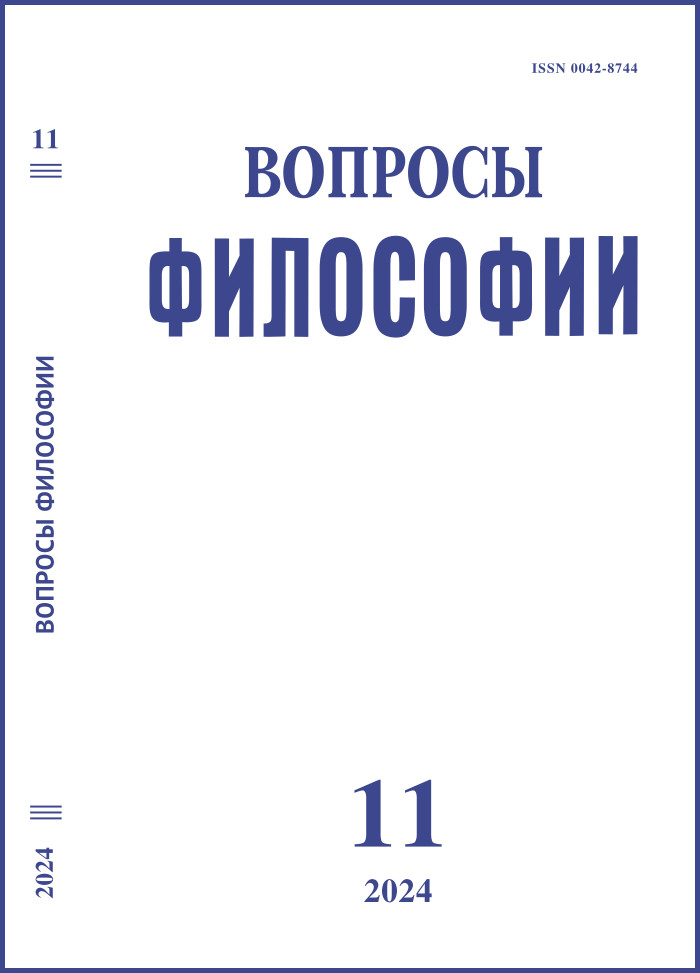The Culture Critic Tendencies in the Context of German Philosophical Anthropology: on the Example of A. Gehlen’s Works
DOI:
https://doi.org/10.21146/0042-8744-2024-11-113-122Keywords:
A. Gehlen, institution, cultural criticism, subjectivity, technology, philosophical anthropology, manAbstract
Cultural criticism is a special critical paradigm, which is characterised by its representatives’ understanding of culture as a force that abolishes human subjectivity and freedom, replacing the idea of man as an end, turning him into a means. Cultural criticism as an ideological current finally took shape in the context of the global historical events that engulfed Germany in the beginning of the 20th century: the collapse of the German Empire, the establishing of the Weimar Republic, two world wars, etc. Representatives of cultural criticism, who rejected the progressive attitudes of the Enlightenment, characterise Modern bourgeois culture in terms of total massification, specialisation and rationalisation of human actions. The article records the connection between cultural criticism and another branch of thought that emerged in Germany around the same time – philosophical anthropology. The major part of the article is devoted to analysing the cultural-critical theses of one of the key representatives of philosophical anthropology – Arnold Gehlen. The key anthropological conclusions of Gehlen are revealed, which underlie his postwar sociology and analysis of the modern era. The article pays particular attention to Gehlen’s thoughts on the role of technology as a key force in the new industrial culture. Gehlen not only records the state of large-scale crisis, but also tries to understand its causes and consequences, looking for options for human preservation in the current chaos. The author’s task is to reveal Gehlen not as a pessimist engaged in criticism for the sake of criticism, but as a full-fledged diagnostician of the era, offering a comprehensive analysis of it

